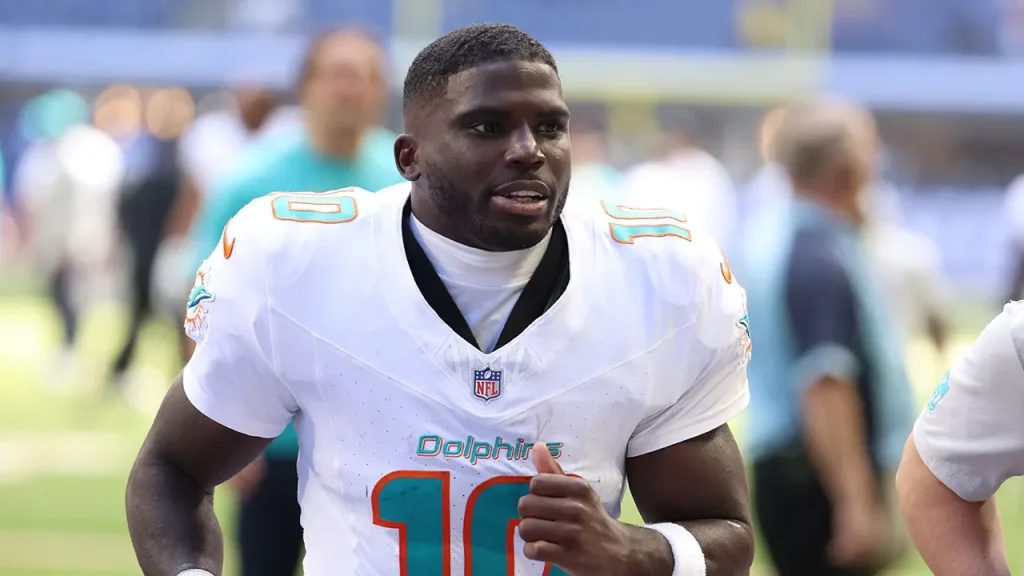Trump’s Criticism of NFL Kickoff Rules Sparks Strong Response from Chiefs Coach
In a recent clash of opinions that has caught the attention of the sports world, Kansas City Chiefs special teams coordinator Dave Toub delivered a pointed response to former President Donald Trump’s criticism of the NFL’s new kickoff rule. During a media session ahead of the Chiefs’ upcoming game against the Indianapolis Colts, Toub didn’t mince words about Trump’s comments, stating, “He doesn’t even know what he’s looking at. He has no idea what’s going on with the kickoff rule.” This candid response from a respected NFL coach highlights the growing tension between sports traditionalists and those who support the league’s safety innovations.
The controversy began when Trump appeared on “The Pat McAfee Show” during a Veterans Day special, where he criticized the NFL’s recently implemented dynamic kickoff rule that was made permanent this year. Trump described the rule as “terrible,” “demeaning,” and harmful to “the pageantry” of the game. He even mentioned that he had expressed these concerns directly to NFL Commissioner Roger Goodell, adding his belief that the new format doesn’t actually improve player safety. These comments followed his earlier characterization of the rule change as “sissy football” in September, reflecting his consistent opposition to what he perceives as an unnecessary alteration to a fundamental aspect of football.
Toub’s blunt assessment of Trump’s understanding of the rule quickly went viral on social media platforms, drawing support from former Chiefs star Tyreek Hill, who enthusiastically endorsed the coach’s comments with a post on X (formerly Twitter) saying, “F—ing animal I love it.” This reaction from Hill, who played for the Chiefs from 2016 through 2021 and served as a returner early in his career before becoming one of the NFL’s premier wide receivers, added fuel to the growing debate. The exchange illustrates how sports figures are increasingly willing to push back against political figures who criticize changes in their profession, particularly when those changes are aimed at improving player safety and longevity.
Meanwhile, the NFL has maintained that the dynamic kickoff system, designed to reduce high-speed collisions while still preserving the excitement of kick returns, is both safer and more effective at generating actual returns instead of touchbacks. This perspective was reinforced during a recent “Thursday Night Football” broadcast when announcers Al Michaels and Kirk Herbstreit praised the new rule after witnessing Buffalo Bills’ Ray Davis return a kickoff 97 yards for a touchdown. Such exciting plays seem to contradict Trump’s assertion that the rule change diminishes the game’s appeal, instead suggesting that it may actually be enhancing certain aspects of special teams play while reducing injury risks.
Toub, who has been with the Chiefs as special teams coordinator since 2013 and was promoted to associate head coach in 2018, speaks from a position of significant expertise in this area. His long tenure with one of the NFL’s most successful franchises of the past decade gives his opinion substantial weight among football professionals. The coach’s willingness to directly challenge a former president’s assessment of football rules demonstrates the confidence he has in his professional judgment, as well as the increasingly complex relationship between sports and politics in contemporary America.
As the debate over the NFL’s kickoff rules continues, it reflects broader cultural conversations about tradition versus innovation, safety versus spectacle, and the role of sports in society. While some, like Trump, see the rule changes as unnecessary departures from football’s physical heritage, others view them as essential evolutions that preserve the game’s excitement while protecting the athletes who make it possible. What’s clear from this exchange is that the intersection of sports, politics, and player safety remains a contentious arena where passionate opinions abound, and where even presidents can find themselves on the receiving end of criticism from those who dedicate their lives to understanding the intricacies of America’s most popular sport.


